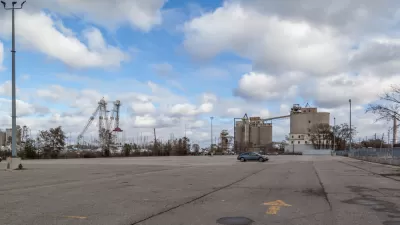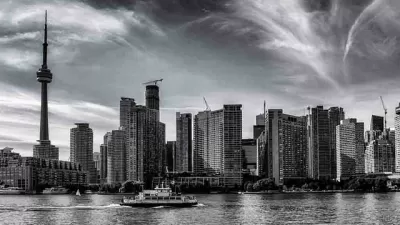Technology will be part of everyday life in a new Toronto neighborhood, planned by Sidewalk Labs. But looking to the future is also raising a host of privacy concerns.

Alphabet’s Sidewalk Labs is teaming up with Waterfront Toronto on Quayside, a 12-acre planned neighborhood on Toronto’s eastern waterfront. The technology-enhanced development has generated concerns about data collection, privacy, and security.
“Critics have sounded alarm bells that so-called urban data — information collected about people in areas such as lobbies, streets, plazas, parks and open spaces near Sidewalk Labs’ mostly residential development — should be in the hands of government, rather than a large, profit-driven U.S. company,” reports Donovan Vincent.
Other criticism has focused on the monetization of data as an outcome of this project. To address these concerns, Sidewalk Labs recently released a Digital Governance Proposals document. “In the draft report, Sidewalk says the monetization of data will not be part of its business model, adding it has committed not to sell personal information or use it for advertising,” says Vincent.
In addition, Sidewalk Labs says guidelines will be in place to protect individuals’ privacy and a data trust will manage collected data. “Sidewalk Labs said in order to protect privacy, any group or business entity proposing to collect or use urban data, including Sidewalk Labs itself, would first have to file a ‘responsible data impact assessment’ with the trust,” reports Vincent.
Still, say critics, the proposals are not adequate and Sidewalk Labs, as a vendor, should not be developing such guidelines. Sidewalk Labs will seek public input on the draft proposals as it moves forward with Waterfront Toronto to develop the Quayside master plan, due out early next year.
FULL STORY: Sidewalk Labs promises not to control data collected in Quayside’s public spaces

Study: Maui’s Plan to Convert Vacation Rentals to Long-Term Housing Could Cause Nearly $1 Billion Economic Loss
The plan would reduce visitor accommodation by 25,% resulting in 1,900 jobs lost.

Alabama: Trump Terminates Settlements for Black Communities Harmed By Raw Sewage
Trump deemed the landmark civil rights agreement “illegal DEI and environmental justice policy.”

Why Should We Subsidize Public Transportation?
Many public transit agencies face financial stress due to rising costs, declining fare revenue, and declining subsidies. Transit advocates must provide a strong business case for increasing public transit funding.

Paris Bike Boom Leads to Steep Drop in Air Pollution
The French city’s air quality has improved dramatically in the past 20 years, coinciding with a growth in cycling.

Why Housing Costs More to Build in California Than in Texas
Hard costs like labor and materials combined with ‘soft’ costs such as permitting make building in the San Francisco Bay Area almost three times as costly as in Texas cities.

San Diego County Sees a Rise in Urban Coyotes
San Diego County experiences a rise in urban coyotes, as sightings become prevalent throughout its urban neighbourhoods and surrounding areas.
Urban Design for Planners 1: Software Tools
This six-course series explores essential urban design concepts using open source software and equips planners with the tools they need to participate fully in the urban design process.
Planning for Universal Design
Learn the tools for implementing Universal Design in planning regulations.
Smith Gee Studio
Alamo Area Metropolitan Planning Organization
City of Santa Clarita
Institute for Housing and Urban Development Studies (IHS)
City of Grandview
Harvard GSD Executive Education
Toledo-Lucas County Plan Commissions
Salt Lake City
NYU Wagner Graduate School of Public Service




























